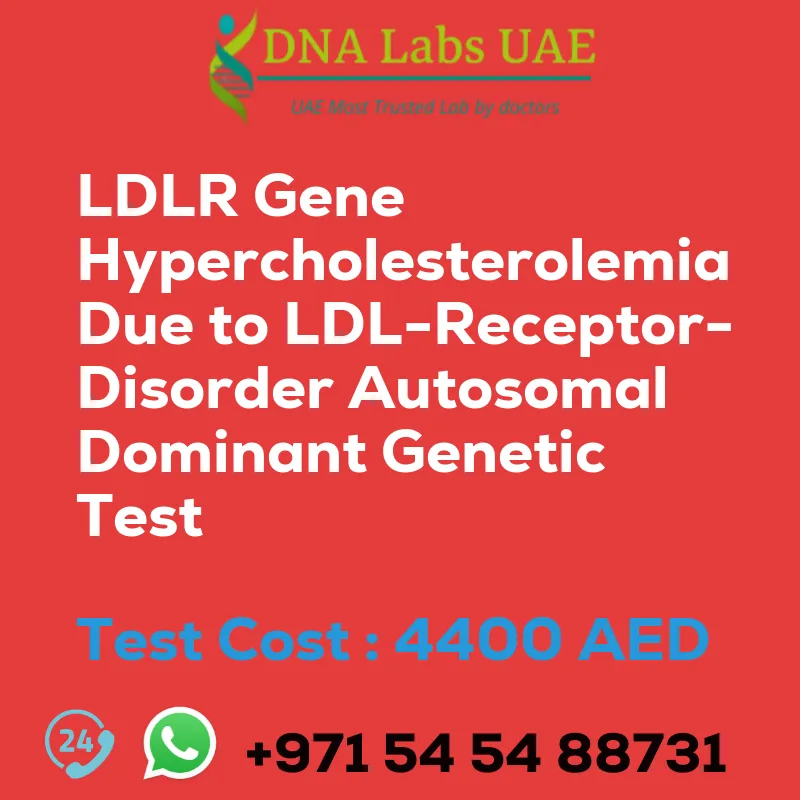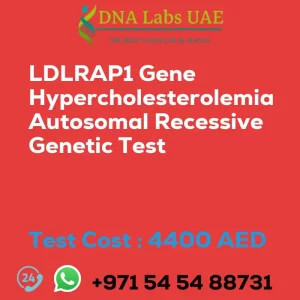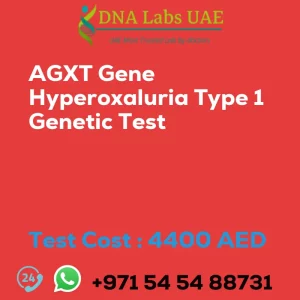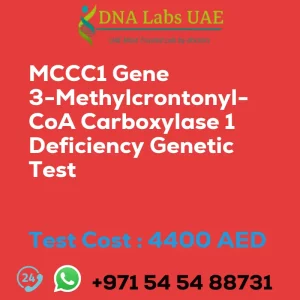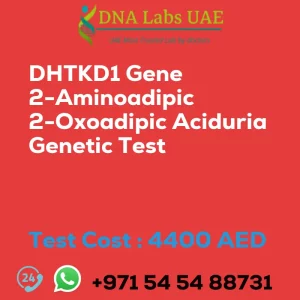LDLR Gene Hypercholesterolemia due to LDL-receptor-disorder autosomal dominant Genetic Test
Test Name: LDLR Gene Hypercholesterolemia due to LDL-receptor-disorder autosomal dominant Genetic Test
Components: Blood or Extracted DNA or One drop Blood on FTA Card
Price: 4400.0 AED
Report Delivery: 3 to 4 Weeks
Method: NGS Technology
Test Type: Metabolic Disorders
Doctor: General Physician
Test Department: Genetics
Pre Test Information: Clinical History of Patient who is going for LDLR Gene Hypercholesterolemia due to LDL-receptor-disorder autosomal dominant NGS Genetic DNA Test. A Genetic Counselling session to draw a pedigree chart of family members affected with Hypercholesterolemia due to LDL-receptor-disorder autosomal dominant.
Test Details
LDLR gene hypercholesterolemia refers to a genetic disorder caused by mutations in the LDL receptor (LDLR) gene. This disorder is characterized by high levels of low-density lipoprotein cholesterol (LDL-C) in the blood, leading to an increased risk of cardiovascular diseases such as heart attacks and strokes.
The LDLR gene provides instructions for producing the LDL receptor protein, which plays a crucial role in removing LDL-C from the bloodstream. Mutations in this gene can disrupt the function of the LDL receptor, impairing its ability to remove LDL-C effectively. As a result, LDL-C accumulates in the blood, leading to hypercholesterolemia.
LDLR gene hypercholesterolemia is inherited in an autosomal dominant manner, meaning that a person only needs to inherit one copy of the mutated gene from either parent to develop the disorder. Individuals with this condition have a 50% chance of passing the mutation onto each of their children.
NGS (Next-Generation Sequencing) genetic testing is a method used to identify genetic mutations in an individual’s DNA. It involves sequencing the entire exome or specific genes of interest to identify any changes or mutations that may be present. In the case of LDLR gene hypercholesterolemia, NGS genetic testing can identify specific mutations in the LDLR gene that are responsible for the disorder.
NGS genetic testing for LDLR gene hypercholesterolemia can help diagnose affected individuals, determine their risk of developing cardiovascular diseases, and guide treatment decisions. It can also be used for genetic counseling and to identify at-risk family members who may benefit from early intervention and preventive measures.
It is important to note that genetic testing for LDLR gene hypercholesterolemia should be performed by a qualified healthcare professional or genetic counselor, who can interpret the results and provide appropriate recommendations based on the individual’s specific situation.
| Test Name | LDLR Gene Hypercholesterolemia due to LDL-receptor-disorder autosomal dominant Genetic Test |
|---|---|
| Components | |
| Price | 4400.0 AED |
| Sample Condition | Blood or Extracted DNA or One drop Blood on FTA Card |
| Report Delivery | 3 to 4 Weeks |
| Method | NGS Technology |
| Test type | Metabolic Disorders |
| Doctor | General Physician |
| Test Department: | Genetics |
| Pre Test Information | Clinical History of Patient who is going for LDLR Gene Hypercholesterolemia due to LDL-receptor-disorder autosomal dominant NGS Genetic DNA Test A Genetic Counselling session to draw a pedigree chart of family members affected with Hypercholesterolemia due to LDL-receptor-disorder autosomal dominant |
| Test Details | LDLR gene hypercholesterolemia refers to a genetic disorder caused by mutations in the LDL receptor (LDLR) gene. This disorder is characterized by high levels of low-density lipoprotein cholesterol (LDL-C) in the blood, leading to an increased risk of cardiovascular diseases such as heart attacks and strokes. The LDLR gene provides instructions for producing the LDL receptor protein, which plays a crucial role in removing LDL-C from the bloodstream. Mutations in this gene can disrupt the function of the LDL receptor, impairing its ability to remove LDL-C effectively. As a result, LDL-C accumulates in the blood, leading to hypercholesterolemia. LDLR gene hypercholesterolemia is inherited in an autosomal dominant manner, meaning that a person only needs to inherit one copy of the mutated gene from either parent to develop the disorder. Individuals with this condition have a 50% chance of passing the mutation onto each of their children. NGS (Next-Generation Sequencing) genetic testing is a method used to identify genetic mutations in an individual’s DNA. It involves sequencing the entire exome or specific genes of interest to identify any changes or mutations that may be present. In the case of LDLR gene hypercholesterolemia, NGS genetic testing can identify specific mutations in the LDLR gene that are responsible for the disorder. NGS genetic testing for LDLR gene hypercholesterolemia can help diagnose affected individuals, determine their risk of developing cardiovascular diseases, and guide treatment decisions. It can also be used for genetic counseling and to identify at-risk family members who may benefit from early intervention and preventive measures. It is important to note that genetic testing for LDLR gene hypercholesterolemia should be performed by a qualified healthcare professional or genetic counselor, who can interpret the results and provide appropriate recommendations based on the individual’s specific situation. |

